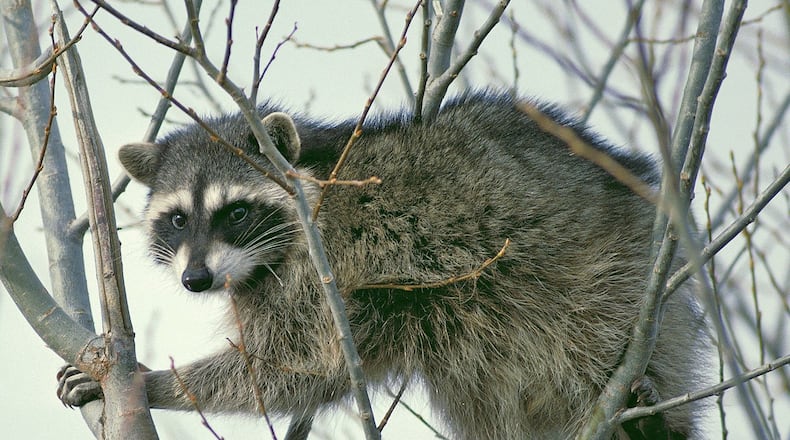When I was taking the trash out the other evening, a raccoon suddenly walked from around the corner of my house. He stopped, looked at me for a second and then scurried into the woods.
I don’t know who was most surprised — the raccoon or me. Mindful of recent reports of rabies in raccoons in DeKalb County, I kept my distance. This animal, though, appeared healthy, so I had no major concerns.
What surprised me was that it was the first raccoon I’ve seen in my north DeKalb back yard in a while. I used to see or hear raccoons often during the night in the yard, but they seemed to have become more secretive — a least in my neighborhood — in recent years.
I suspect that coyotes may be keeping urban raccoons in check. A coyote will eat almost anything that it can subdue, which often includes young and adult raccoons (although a fully grown raccoon weighing 25 pounds can put up a good fight against a coyote.)
This is a busy time of year for raccoons in Georgia. February-March is their prime breeding time. A litter of 1-7 young is born two months later. Young raccoons, called kits, are weaned at 10-12 weeks of age and then begin traveling with their mother on nightly foraging forays.
With its bandit mask, tiny hands and striped tail, the raccoon is one of Georgia’s most recognizable animals. It’s also one of the most adaptable, found in rural habitats from coastal salt marshes to upland forests, and in city and suburban neighborhoods as well.
Its presence in urban areas sometimes makes it a nuisance. To help prevent that, don’t feed raccoons, either on purpose or accidentally. Secure trash can lids. Don‘t leave pet food or treats outside.
A healthy raccoon is mostly nocturnal, foraging during the night and returning to its den before sunrise — although raccoons in Georgia sometimes forage during the day. Georgia wildlife officials caution, however, that a raccoon that appears during daylight hours should be avoided.
IN THE SKY: From David Dundee, Tellus Science Museum astronomer: The moon will be last-quarter on Tuesday. Venus rises in the east a few hours before dawn. Mars is low in the southwest at dusk. Jupiter and Saturn are low in the east just before sunrise. Jupiter will appear near the moon on Thursday.
About the Author
Keep Reading
The Latest
Featured


